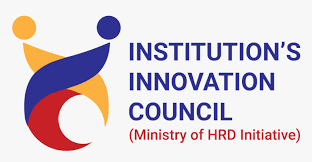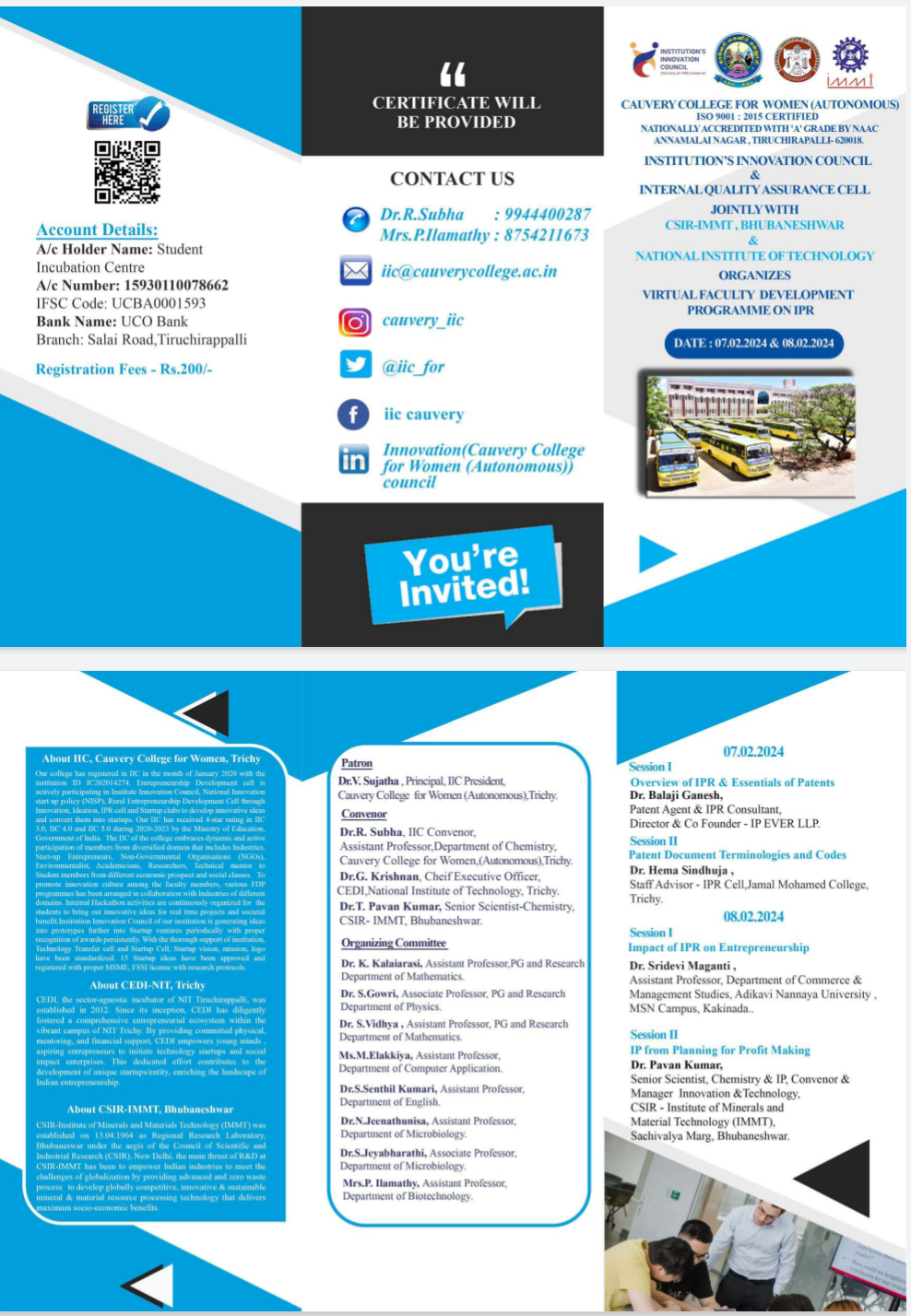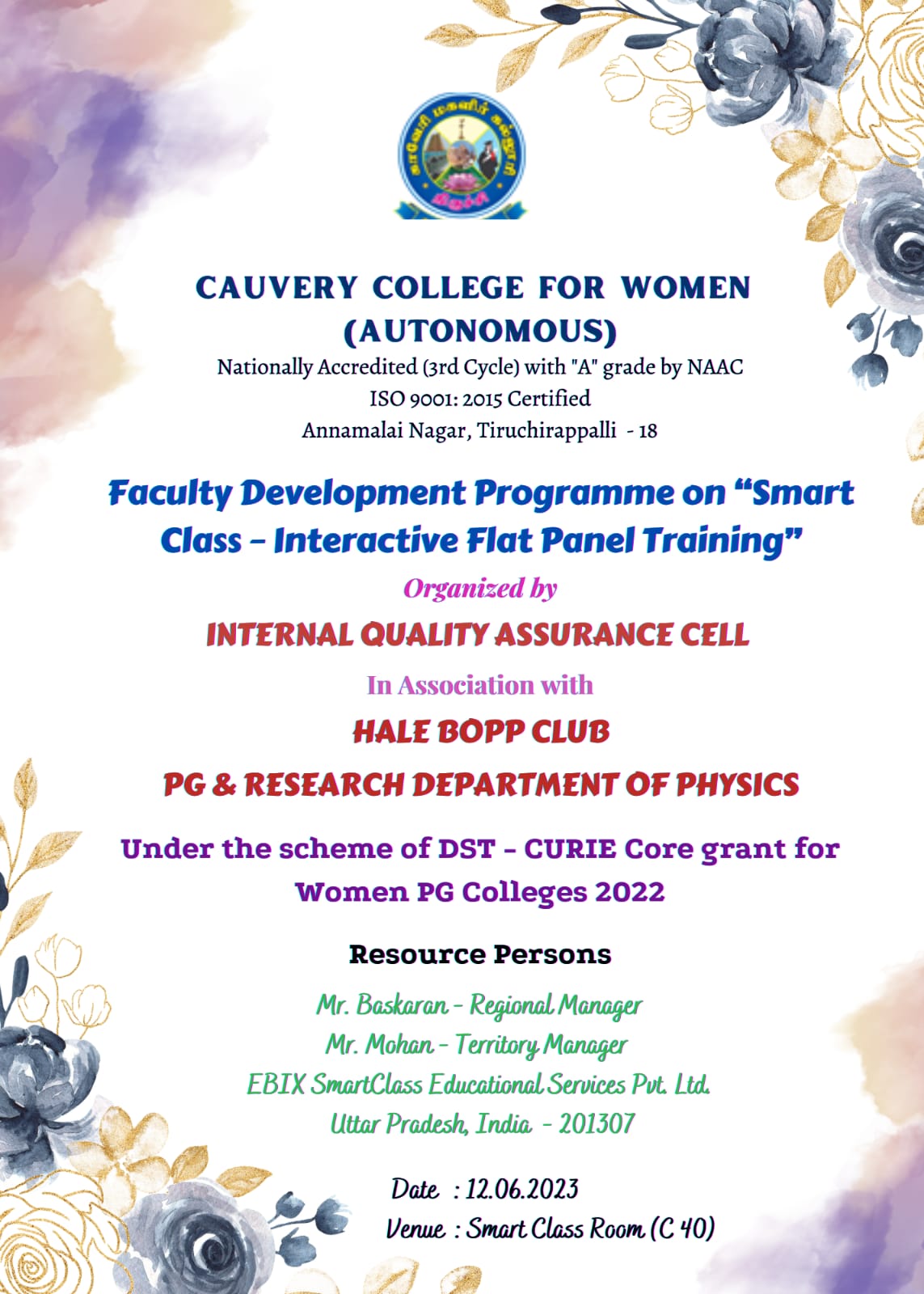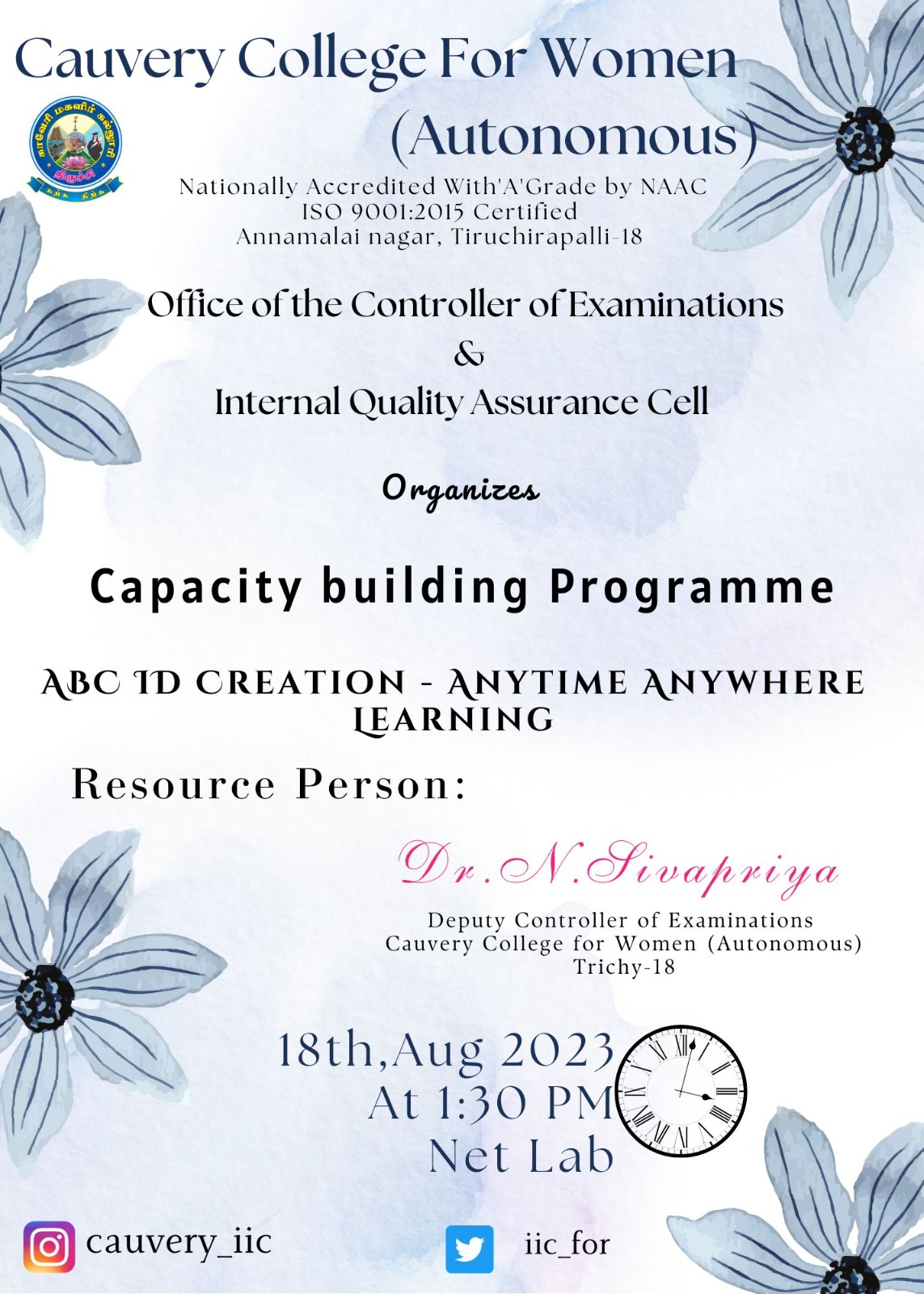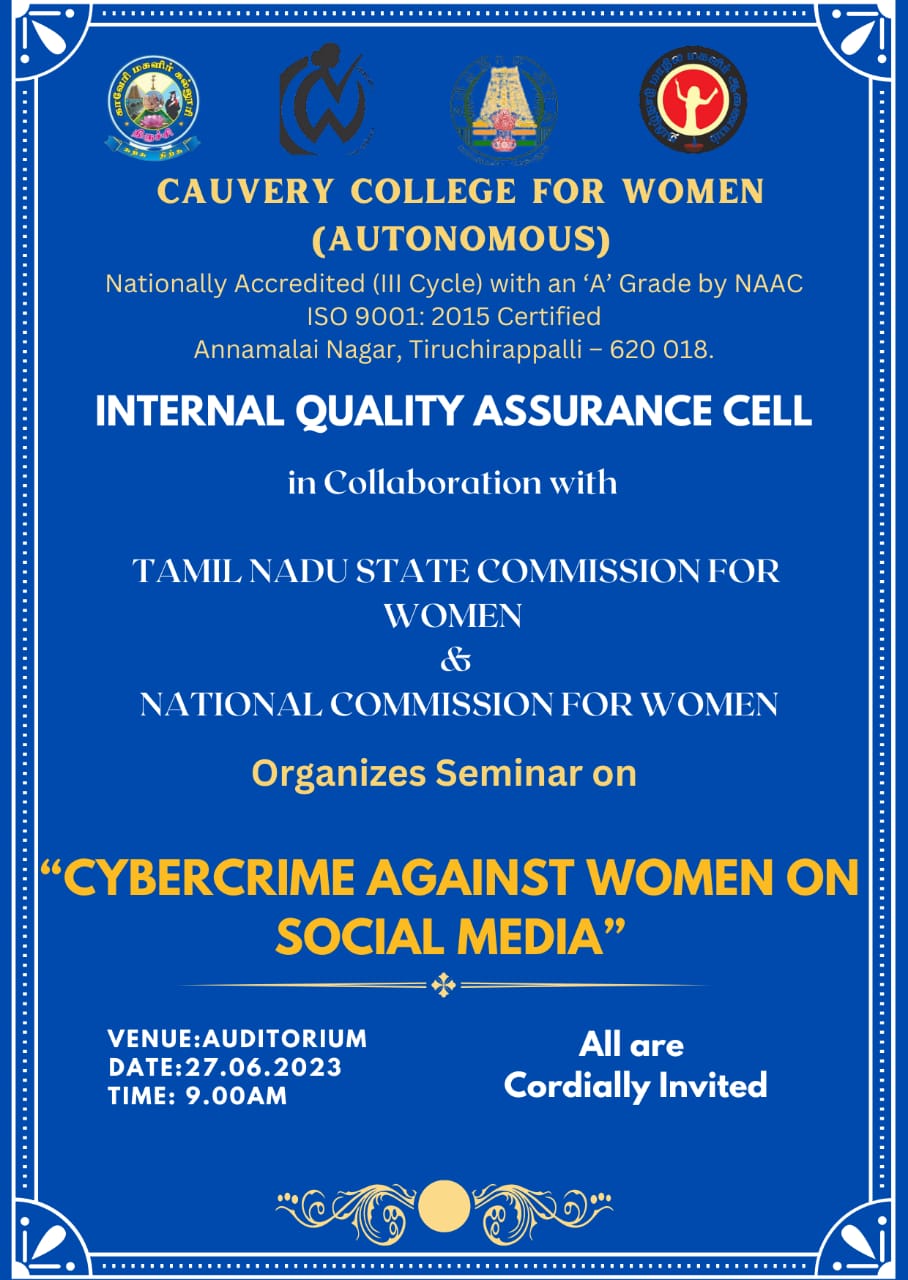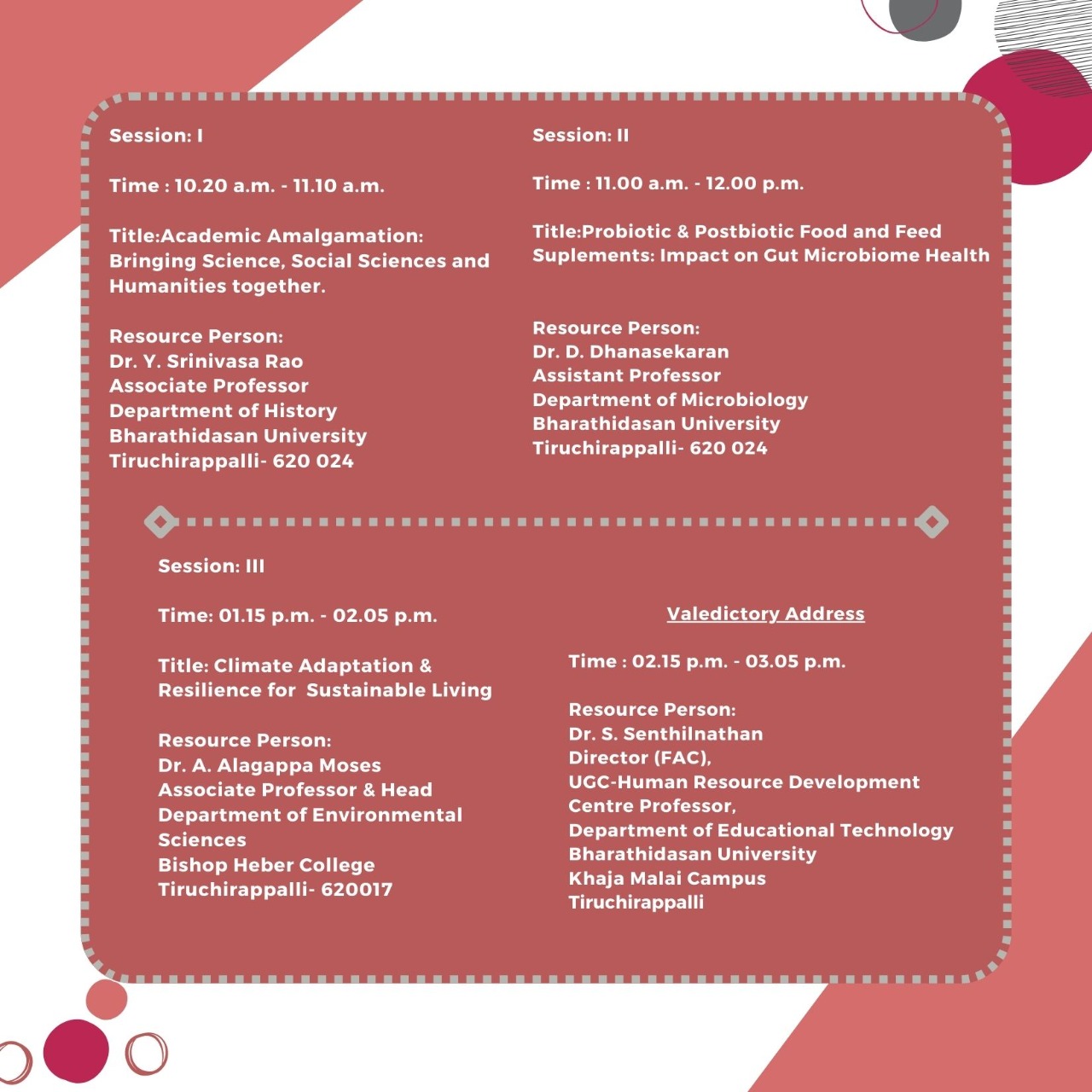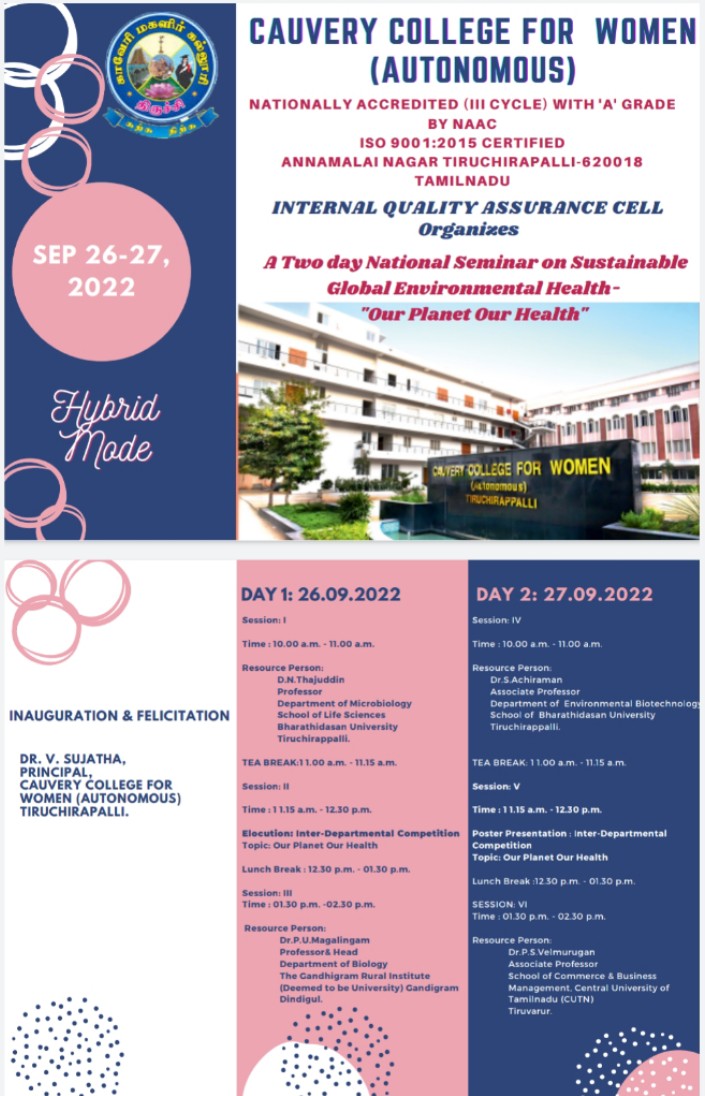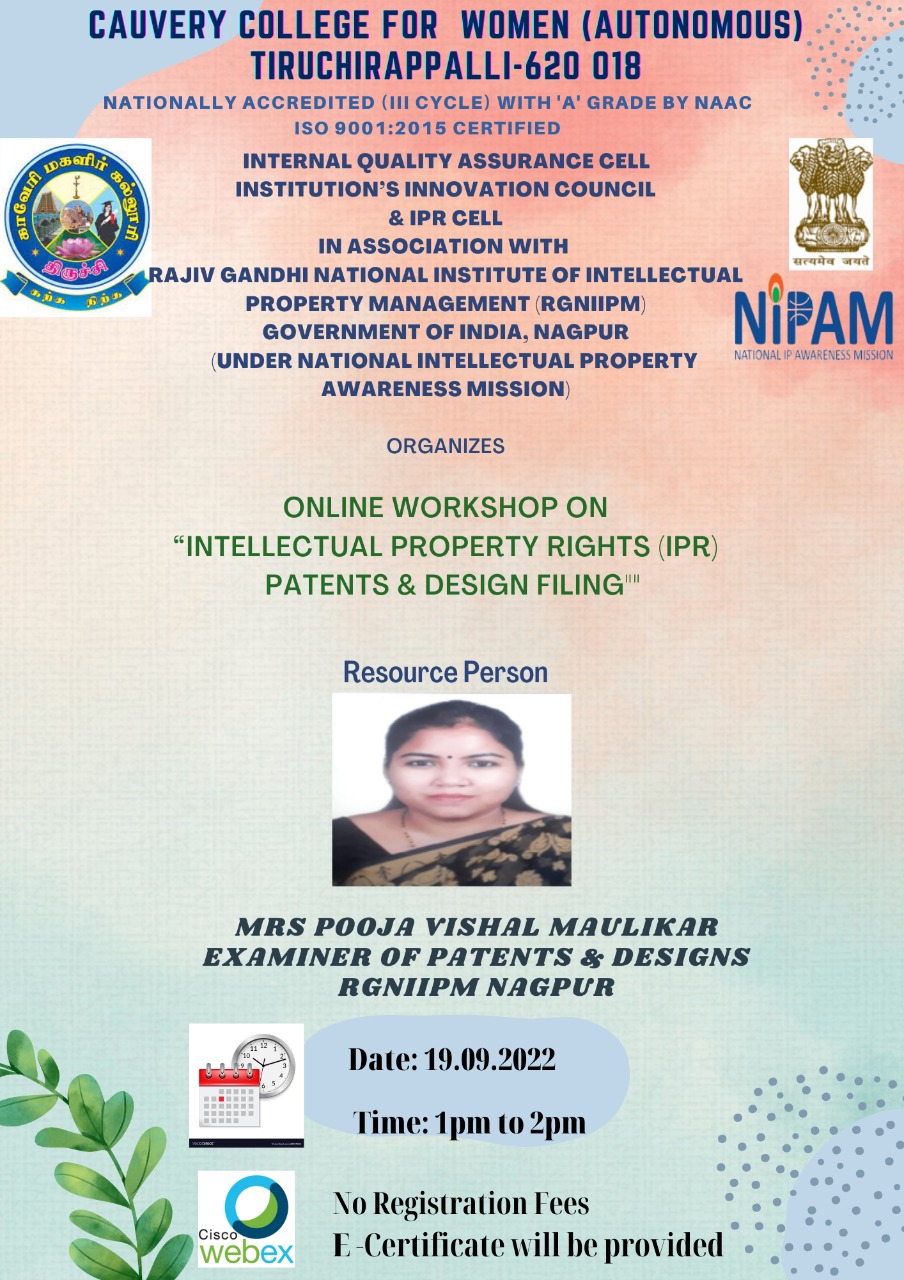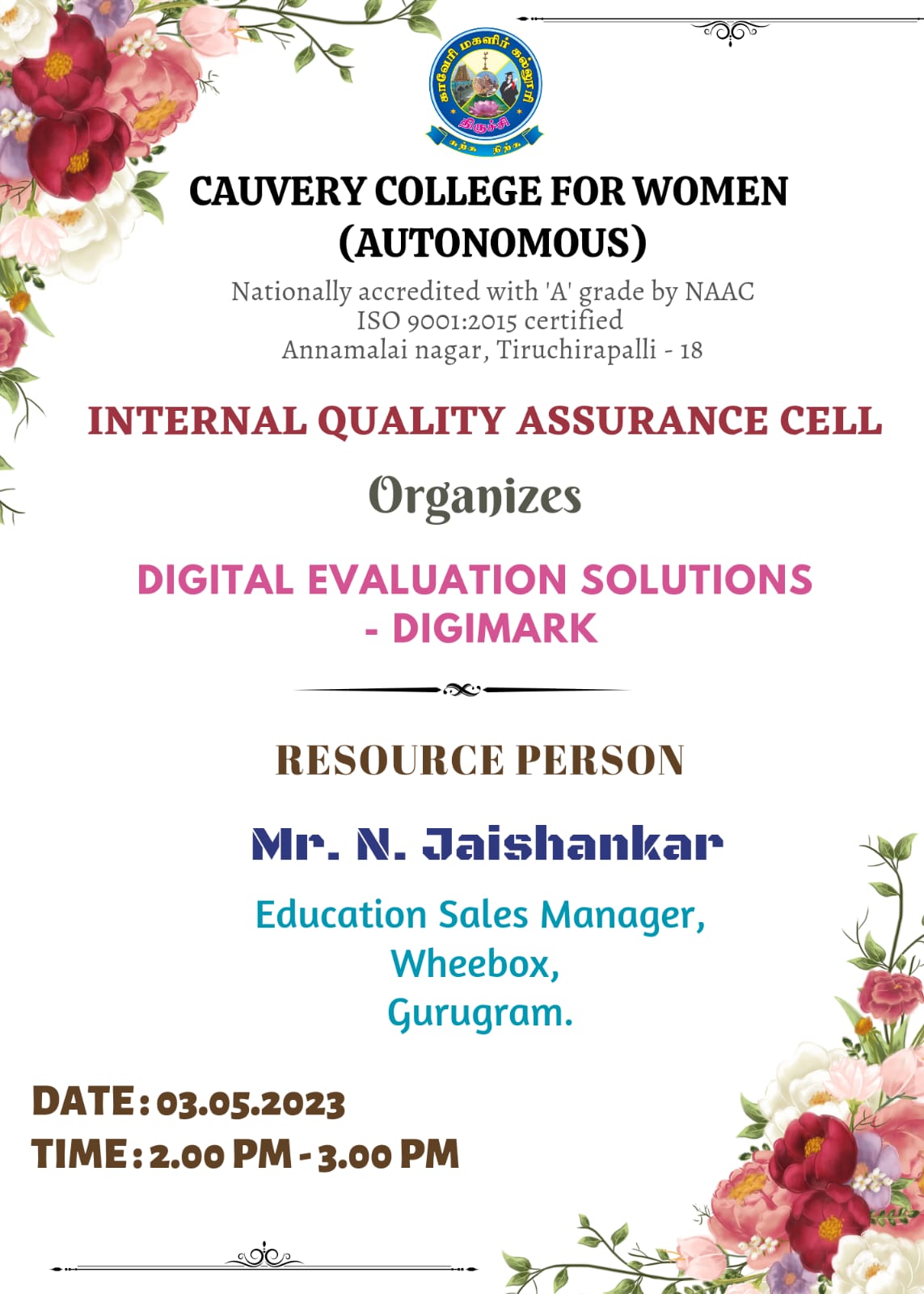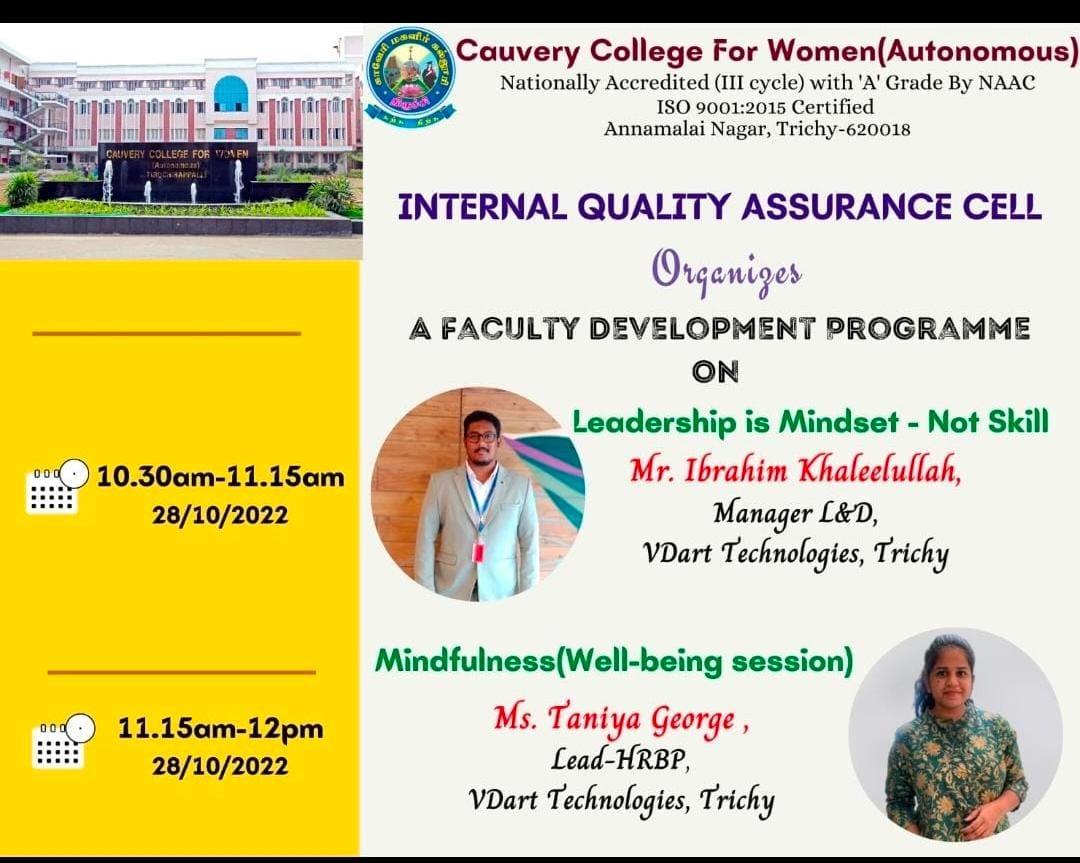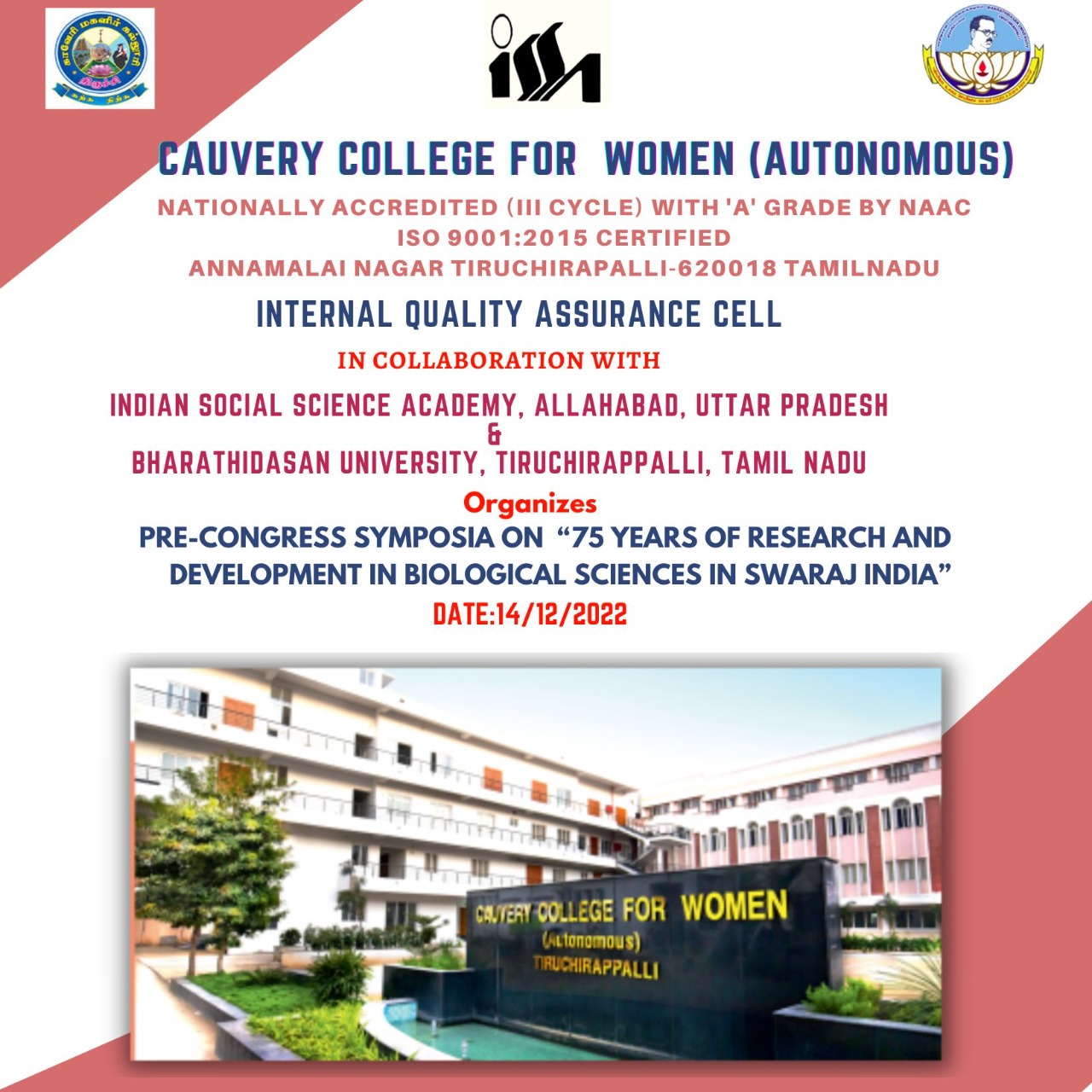Composition of IQAC
The composition of the IQAC may be as follows:
1. Chairperson: Head of the Institution
2. A few senior administrative officers
3. Three to eight teachers
4. One member from the Management
5. One/two nominees from local society, Students and Alumni
6. One/two nominees from Employers /Industrialists/stakeholders
7. One of the senior teachers as the coordinator/Director of the IQAC
Term : Two years
Meetings :Atleast twice a year
Functions of the IQAC
-
Development and application of quality benchmarks/parameters for various academic and administrative activities of the institution
-
Facilitating the creation of a learner-centric environment conducive to quality education and faculty maturation to adopt the required knowledge and technology for participatory teaching and learning process
-
Arrangement for feedback response from students, parents and other stakeholders on quality-related institutional processes
-
Dissemination of information on various quality parameters of higher education
-
Organization of inter and intra institutional workshops, seminars on quality related themes and promotion of quality circles
-
Documentation of the various programmes/activities leading to quality improvement.
-
Acting as a nodal agency of the Institution for coordinating quality-related activities, including adoption and dissemination of best practices.
-
Development and maintenance of institutional database through MIS for the purpose of maintaining /enhancing the institutional quality.
-
Development of Quality Culture in the institution.
-
Preparation of the Annual Quality Assurance Report (AQAR) as per guidelines and parameters of NAAC, to be submitted to NAAC
IQAC Composition
Members
Designation
Chair Person
Dr S Ramalakshmi
Principal
Management
Shri. V Ramanathan @ Sekar
Secretary, College Governing Council
Ex-Officio
Dr S Prema Latha
Controller of Examinations
Dr J Sangeetha
Deputy Controller of Examinations
Teachers
Dr N Girubagari
Vice Principal
Dr Sinthu Janita Dean of Science &
Head, Dept of Computer ScienceDr Metilda Bhuvaneswari
Dean of Arts
Dr M Parveen
Dean of Alumnae Relations
Dr A R Gomathy
Head, Dept of Tamil
Dr M Uma Maheswari
Head, Dept of English
Dr N Savithri
Head, Dept of Commerce
Dr S Thamaraiselvi
Head, Dept of BBA
Dr G Maheswari
Head, Dept of Physics
Dr P Pungayee @ Amirtham
Head, Dept of Chemistry
Dr R Merlin Packiam
Head, Dept of Computer Applications
Dr B Thamilmaraiselvi
Head, Dept of Microbiology
Dr R Rameshwari
Head, Dept of Biotechnology
Dr B Thanuja
Head, Dept of Food Service Mgt & Dietetics
Dr R Sangeetha
Asst. Prof., Dept of Computer Science
Ms T Nithya
Physical Directress
Ms M Theivanai
Librarian
Senior Administrative Officer
Mr K Thirunavukkarasu
Manager
Student Representatives
Ms S Shruthi
III BBA
Ms S Abinayna
III BA Tamil
External Academic Experts
Dr Qurshid Begum
IQAC Coordinator
St. Joseph's College (Autonomous), TiruchirappalliDr J O Jeryda Gnanajane Eljo
Professor
Department of Social Work
Bharathidasan University
Khajamalai Campus, Tiruchirappalli-620 023Alumnae
Ms S Dhaarani
Proprietor, Narumugai Herbal Sanitary Napkins, Mayiladuthurai
Dr R Seethalakshmi
Associate Professor
ICFAI Business School, BengaluruLocal Society
Mr C Shantha Kumar
Director, Spastic Society of Tiruchirappalli.
Industrialist
Dr Sivakumar Muthusamy
Proprietor, Ariviya Technologies,
IIT Madras Research Park, Chennai.Assistant IQAC Coordinator
Dr P Saranya
Associate Professor, Dept of Mathematics
IQAC Coordinator
Dr P Pungayee @ Amirtham
Head & Associate Professor, Dept of Chemistry
-
Vision & Objectives
Vision
To make quality the defining element of higher education in India through a combination of self and external quality evaluation, promotion and sustenance initiatives
Mission
-
To arrange for periodic assessment and accreditation of institutions of higher education or units thereof, or specific academic programmes or projects;
-
To stimulate the academic environment for promotion of quality of teaching-learning and research in higher education institutions;
-
To encourage self-evaluation, accountability, autonomy and innovations in higher education;
-
To undertake quality-related research studies, consultancy and training programmes,and
-
To collaborate with other stakeholders of higher education for quality evaluation, promotion and sustenance.
Value Framework
To promote the following core values among the HEIs of the country:
-
Contributing to National Development
-
Fostering Global Competencies among Students
-
Inculcating a Value System among Students
-
Promoting the Use of Technology
-
Quest for Excellence
STRATEGIES & FUNCTIONS
STRATEGIES
IQAC shall evolve mechanisms and procedures for:
-
Ensuring timely, efficient and progressive performance of academic, administrative and financial units;
-
Adoption of relevant and quality academic and research programmes;
-
Ensuring equitable access to and affordability of academic programmes for various sections of society;
-
Optimization and integration of modern methods of teaching and learning;
-
Ensuring credible assessment and evaluation processes;
-
Ensuring the proper allocation, adequacy and maintenance of support structure and services
-
Sharing of research findings and networking with other institutions in India and abroad
FUNCTIONS
Some of the functions expected of the IQAC are:
- Development and application of quality benchmarks;
- Setting parameters for various academic and administrative activities of the institution;
- Facilitating the creation of a learner-centric environment conducive to quality education and faculty development to adopt the required knowledge and technology for participatory teaching and learning process;
- Collection and analysis of feedback from all the stakeholders on quality-related institutional processes; d) Dissemination of information on various quality parameters to all the stakeholders;
- Organization of intra- and inter-institutional workshops and seminars on quality-related themes and promotion of quality circles;
- Documentation of various programmes/activities leading to quality improvement;
- Acting as a nodal agency of the institution for coordinating quality-related activities, including adoption and dissemination of the best practices;
- Development and maintenance of institutional database through MIS to maintain and enhance institutional quality;
- Periodical conduct of Academic and Administrative Audits along with their follow-up activities;
- Preparation and submission of the Annual Quality Assurance Report (AQAR) as per the guidelines and parameters of NAAC.
Quality Policy Statement
Cauvery College for Women has set the institution quality policy as given below.
QUALITY POLICY
The Quality Policy of Cauvery College for Women (Autonomous) is set out as:
The Institution is dedicated to inculcate a dynamic equilibrium for Women with:
-
Academic Excellence and Qualities of Competence,
-
Confidence and Excellence to gratify the needs of employability and enshrine as self-reliant Individuals.
-
Imparting knowledge of higher order and entrepreneurial skills embedded with Cultural and Social Values.
The Management is committed to satisfy all the applicable statutory requirements.
The Management is committed to provide a continual improvement of the Quality Management System.
Perspective Plan
Deployment of Perceptive Plan and Strategic Plan

